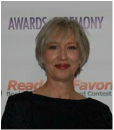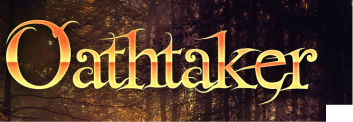
Japan, her people, and her language has fascinated me since grade school The beauty and mystery of such an ancient place takes me to a land I've never seen, but long to visit. From this far off isle comes a philosophy that strikes a chord in my soul and meshes with the beliefs that inspire and underscore every aspect of who I am as a writer.
Read more here.

In all honesty, I don’t think the limited space of this format is up to the task of dealing with the subject. The best we can do is skim the surface of the tender, personal area that is our beliefs, codes, or faith. Do I have faith?
Read more here.

This month, we Quills asked the following question: Is there any particular code, belief or faith that inspires your writing and how/why/why not?
At the outset, I would say that this topic makes me think of posing the following question to a judge: can you render a decision without letting your ideology play any part? Anyone who’s ever studied the law knows that it is unlikely. A judge arrives at his decision because of who he is, and what he believes in. His life experience colors the interpretation of the law he will apply to the facts at hand, as well as his understanding of the events that transpired.
Similarly, every writer is a combination of her experiences, her successes and failures, and of her beliefs. It may be that someone who writes about our current world, could draw with her words what she sees in society with little input of her own code or belief. Even then, however, what she chooses to tell you about in her story, it seems to me, reflects something about her and about what she sees as important. Indeed, I think it would be impossible for any author’s writing not to reflect those things. If this is true of a writer of contemporary fiction, it is even more true of a fantasy writer.
The world set forth in a fantasy writer’s tale doesn’t exist. She has to make everything up—the systems, the rules of law, societal norms, and characters. How could a writer possibly create those things without drawing on what she knows? It would be like writing without words, or making music without sound, or describing things without color. In short, I don’t think it likely that a writer—particularly a fantasy writer—could create any world that does not reflect in some way, her belief system. I suppose, with respect to the currently popular “dark fantasy” or “gritty fantasy” stories, wherein all too often, there are no upright characters, and no “right” or “wrong” actions, you could argue that the author made no moral judgment. But I wonder: is it possible she presented that particular fantasy world because that is the world she believes in—that people are morally bankrupt and that rules or ethics have no value to, or should have no place in, society?
I freely admit that there is a moral code that undergirds the world I write about. It is one I’ve spent my life learning about and striving to attain—though I’m certain I’ll never fully achieve the ultimate goal of perfection, of self sacrifice, or of caring for others quite as well as I ought. Even so, I’m reminded of the Alfred Lord Tennyson quote: “’Tis better to have loved and lost than never to have loved at all.” I would say: “’Tis better to have tried and failed, than never to have tried at all.” In my real world, I do just that. In the world I’ve created in my fantasy stories, so too do my characters . . .


